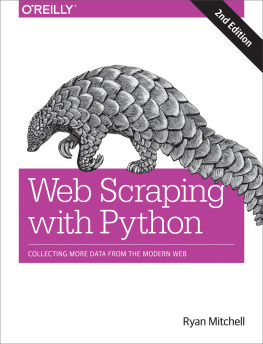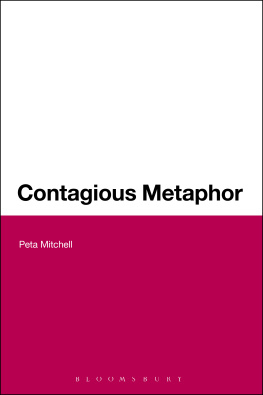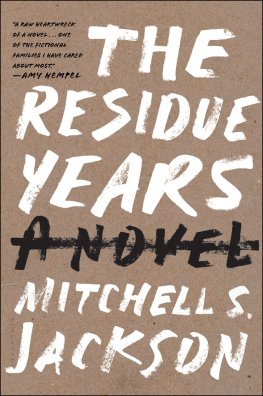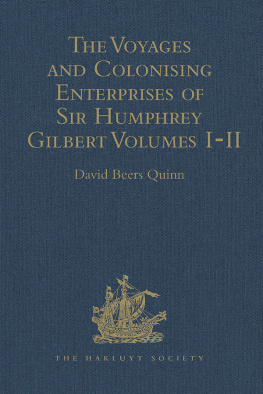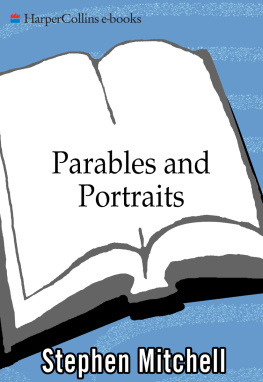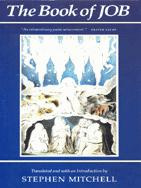Mitchell - Colonising Egypt
Here you can read online Mitchell - Colonising Egypt full text of the book (entire story) in english for free. Download pdf and epub, get meaning, cover and reviews about this ebook. City: London;Berkeley (Calif.);Égypte;Europe;Egypte;Los Angeles (Calif, year: 1991, publisher: University of California Press, genre: Religion. Description of the work, (preface) as well as reviews are available. Best literature library LitArk.com created for fans of good reading and offers a wide selection of genres:
Romance novel
Science fiction
Adventure
Detective
Science
History
Home and family
Prose
Art
Politics
Computer
Non-fiction
Religion
Business
Children
Humor
Choose a favorite category and find really read worthwhile books. Enjoy immersion in the world of imagination, feel the emotions of the characters or learn something new for yourself, make an fascinating discovery.

- Book:Colonising Egypt
- Author:
- Publisher:University of California Press
- Genre:
- Year:1991
- City:London;Berkeley (Calif.);Égypte;Europe;Egypte;Los Angeles (Calif
- Rating:4 / 5
- Favourites:Add to favourites
- Your mark:
- 80
- 1
- 2
- 3
- 4
- 5
Colonising Egypt: summary, description and annotation
We offer to read an annotation, description, summary or preface (depends on what the author of the book "Colonising Egypt" wrote himself). If you haven't found the necessary information about the book — write in the comments, we will try to find it.
Colonising Egypt — read online for free the complete book (whole text) full work
Below is the text of the book, divided by pages. System saving the place of the last page read, allows you to conveniently read the book "Colonising Egypt" online for free, without having to search again every time where you left off. Put a bookmark, and you can go to the page where you finished reading at any time.
Font size:
Interval:
Bookmark:

Colonising Egypt

Colonising Egypt

TIMOTHY MITCHELL
New York University

University of California Press
Berkeley and Los Angeles, California
University of California Press, Ltd.
London, England
Cambridge University Press 1988
First paperback printing 1991
Library of Congress Cataloging-in-Publication Data
Mitchell, Timothy.
Colonising Egypt/Timothy Mitchell.
p. cm.
Reprint. Originally published: Cambridge, Cambridgeshire; New York : Cambridge University Press, 1988. With new pref.
Includes bibliographical references and index.
ISBN 978-0-520-07568-9 (alk. paper)
1. EgyptRelationsEurope. 2. EuropeRelationsEgypt.
3. EgyptCivilization1798- I. Title.
DT100.M57 1991
303.4826204dc20 91-15090 CIP
Printed in the United States of America
15 14 13 12 11 10 09 08 07
16 15 14 13 12 11 10 9
The paper used in this publication is both acid-free and totally chlorine-free (TCF). It meets the minimum requirements of ANSI/NISO Z39.48-1992 (R 1997) (Permanence of Paper). 
The fundamental event of the modern age
is the conquest of the world as picture.
Martin Heidegger, The age of the world picture
This order of appearance is the order of
all appearance, the very process of appearing
in general. It is the order of truth.
Jacques Derrida, The double session
This book is not a history of the British colonisation of Egypt but a study of the power to colonise. While focussing on events in Egypt in the latter part of the nineteenth century, its argument is addressed to the place of colonialism in the critique of modernity. Colonising refers not simply to the establishing of a European presence but also to the spread of a political order that inscribes in the social world a new conception of space, new forms of personhood, and a new means of manufacturing the experience of the real. Colonising Egypt analyses in the everyday details of the colonial project the metaphysics of its power.
begins by describing a novel attempt in the early nineteenth century to regulate the daily life of rural Egyptians. In the 1820s and 1830s orders were issued from Cairo prohibiting the movement of villagers outside their native districts, prescribing the crops they were to grow and the means of cultivation, distribution, and payment, and stipulating the hierarchy of surveillance, inspection, and punishment by which these rules were to be enforced. Attempting to control from Cairo the agricultural revenue of the Nile valley was nothing new. But earlier forms of control were always porous and uncertain. Typically, a powerful central household imposed levies on less powerful regional households, which in turn imposed obligations on those around them. Revenues flowing towards the center were liable to leak at each juncture and could be increased only by further expansion outward, which weakened the network by adding further points of leakage. The new controls of the nineteenth century attempted not just to appropriate a share of the agricultural surplus but to penetrate the processes of rural production, manipulate its elements, and multiply what John Bowring (an English advisor to the Egyptian government) called the productive powers of the country. The effectiveness of disciplinary methods, as Michel Foucault has termed these modern forms of power, lay not in their weight or extent, but in the localised ability to infiltrate, rearrange, and colonise.
Bowring, the advisor in Cairo, was the friend and assistant of the English reformer Jeremy Bentham, who in turn was the inventor of the Panopticon, the institution in which the use of coercion and commands to control a population was replaced by the partitioning of space, the isolation of individuals, and their systematic yet unseen surveillance. Foucault has suggested that the geometry and discipline of the Panopticon can serve as an emblem of the micro-physical forms of power that have proliferated in the last two centuries and formed the experience of capitalist modernity.
Foucaults analyses are focused on France and northern Europe, yet forms of power based on the re-ordenng of space and the surveillance and control of its occupants were by nature colonising in method. Moreover, examples of the Panopticon and similar disciplinary institutions were developed and introduced in many cases not in France or England but on the colonial frontiers of Europe, in places like Russia, India, North and South America, and Egypt. Jeremy Bentham corresponded with local rulers in all these places, including the governor in Cairo, Muhammad Ali Pasha, advocating the introduction of the panoptic principle and other new techniques. For many Europeansmilitary officers, Saint-Simonist engineers, educationalists, physicians, and othersa place like nineteenth-century Cairo provided the opportunity to help establish a modern state based on the new methods of disciplinary power.
The model for the new forms of power in Egypt, as explains, was the New Order, the Egyptian military reform of the 1820s whose innovative methods of manoeuvering and managing armed men created a military force more than four times the size and strength of previous armies. The creation of this force had both regional and domestic consequences. Regionally, it enabled Cairo to colonise an empire that stretched from Arabia and the Sudan in the south to Greece and Crete and later Palestine and Syria in the north. Local revolt and European intervention forced the empires dismantling, and military power was subsequently redeployed to set up and police the geographical boundaries that created Egypt as a politico-spatial entity. European commercial and political penetration further weakened the regime in Cairo and brought on its economic collapse, followed in 1882 by the British invasion and occupation.
Domestically, the creation of the new army, as Bowring remarked, was in itself the establishment of a principle of order which spread over the entire surface of society. The spread of this principle is examined in seemed to offer a means of transforming every youth in the country into an industrious and obedient political subject. In the second half of the nineteenth century the discipline of schooling came to be considered the defining element in the politics of the modern state. Political order was to be achieved not through the intermittent use of coercion but through continuous instruction, inspection, and control.
Disciplinary methods have two important consequences for an understanding of the colonial and modern stateonly the first of which is analysed by Foucault. In the first place, one can move beyond the image of power as a system of authoritative commands or policies backed by force that direct and constrain social action. Power is usually imagined as an exterior restriction: its source is a sovereign authority above and outside society, and it operates by setting limits to behaviour, establishing negative prohibitions, and laying down channels of proper conduct.
Next pageFont size:
Interval:
Bookmark:
Similar books «Colonising Egypt»
Look at similar books to Colonising Egypt. We have selected literature similar in name and meaning in the hope of providing readers with more options to find new, interesting, not yet read works.
Discussion, reviews of the book Colonising Egypt and just readers' own opinions. Leave your comments, write what you think about the work, its meaning or the main characters. Specify what exactly you liked and what you didn't like, and why you think so.

